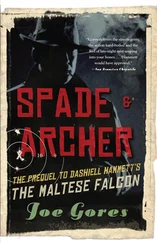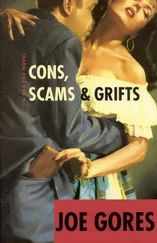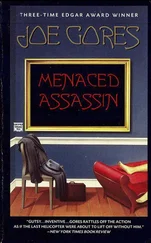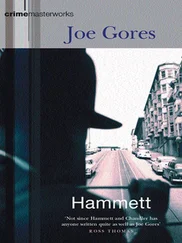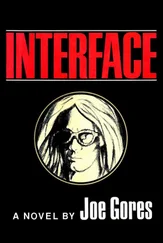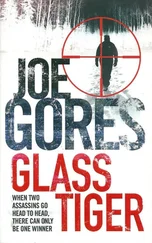“Yes. We’re from Indiana. The kids are so excited...”
“Wal, don’t let ’em get scairt — it’s all jus’ funnin’.”
He sat behind her on the bleachers and, when the lights went down, slipped two $20s from the wallet. When the audience applauded the completion of the tour guide’s opening spiel, he dropped the wallet back into the purse.
If the mark had only a bill or two, he took nothing at all. If the wallet was missed before he could return it, he merely dropped it on the floor. When it was found with money still inside, they were happy: at an amusement park with the kids, who knew how much actual cash they had left?
By early afternoon he’d made nearly $200, a very good day’s score, when, from the queue for the next bus, he saw the door of one of the maintenance sheds was ajar. Awfully early in the season, but too good to pass up even though
Universal would know a dip had been working the crowd that day. He would skip work for a week, let the pickpocket heat die down; the big score should make the interruption of steady income worth it.
He stepped casually over the low fence flanking the walkway and went through screening bushes into the shed. A minute later he emerged wearing a white knee-length smock with MAINTENANCE printed across the back. His ten-gallon hat had been replaced by a billed MAINTENANCE cap, pulled low to hide his greyed hair and shadow his eyes. His mustache was in his pocket.
“Pardon me, folks, could I get through?” Working his way clumsily up the line at the busiest food concession, a shoulder jostle here, a lurch there, a slip and a hand out to steady himself elsewhere. “Sorry, ma’am, something slippery there...”
All the time, dip, dip, dip — busy clever fingers darting into pockets and handbags as he moved along, sliding the take into the voluminous pockets of the maintenance smock. His mother had taken him to playgrounds to practice on other kids’ mothers when he was too little to be arrested, so he had good hands.
At the head of the line he veered off to the side door, opened it, stuck his head and a $20 bill inside, reading the name of the nearest girl off the front of her smock as he did.
“Hey, Marie, can you give me two double cheeseburgers and two jumbo fries and two big Cokes? All in one big sack? We got a generator shorting out down by King Kong and I’m gonna be stuck there the rest of the day.” She looked blank. “Charlie Bilton. We got our jobs the same day.”
Marie didn’t know him because they hadn’t, of course, but now she thought she knew him. “Oh, sure. Hi, Charlie.”
Her quick hands scooped up two bulky wrapped burgers and two fries and two Cokes, stuck them and napkins in a big bag with a bright logo on the side, took his money, gave him change.
“Thanks, Marie. See you later.”
He worked quickly around the knoll, hitting three more concessions, then sheared off back to the shed. Inside, he dropped the food into a big green leaf bag but kept the paper sack — in it the wallets looked and smelled like hamburgers and fries. Off with smock and cap, mustache stuck hurriedly back on. aw-shucks-ma’am cowboy hat back in place, slip out of the shed.
This was the time of maximum exposure, when he still had the wallets on him. Usually, this kind of gig. you handed off to an accomplice. But he had no accomplice, he had to work alone, the rest of the goddamned Gypsies had seen to that. Just because, drunk, he’d ignore marimays — tribal taboos — relating to women. So now he was no longer welcome into anybody’s vitsa .
Twenty minutes later, he was walking up toward the main gate past sound stages and bungalows with the names of current TV shows on them, past the Alfred Hitchcock Theatre, the editing building, then left into the newly refurbished commissary.
In the big echoing basement men’s room he emptied the leathers of their money and credit cards, feeding the stripped and wiped wallets one by one into the tippy mouth of the trash bucket. He removed his mustache and ran wet fingers through his hair to blot out some grey, crushed his high-crowned cowboy hat into a nondescript oval under one arm. He emerged minus a dozen years and the cowboy’s pigeon-toed bowlegged walk.
Out the main gate past the guard kiosk, across Lankershim to the Universal City branch post office. Check his P.O. box, then catch a bus down to LAX and sell the credit cards to a broker. Tomorrow they would be in play in New York, until the security nets got them on the stolen-card lists.
There was an Express Mail envelope from San Francisco in his box. At a table under the WANTED posters he pocketed the S50 bill it contained and read DKa’s accompanying material. The gadje were offering $100 for each hot tip that led to recovery of any of those San Francisco Cadillacs he’d already heard about.
He was sure his bitch wife, Yana, was involved in it. Yana, who wouldn’t work like a good Gypsy wife to bring money home to her husband no matter how much he beat her. Yana, who taught herself to read and write like no good Gypsy woman should.
Since the rom chose to treat him as an outcast, the bastards, he would make them pay right along with her. He would spend his week off work from the studio tour to run with the rom once more, pick up a word here, a name there, then piece things together. Then he would make occasional calls to San Francisco and he would have his revenge — wonderful revenge, repeated revenge, filling as stolen eggs, sweet as wild honey.
Revenge at $100 an installment. Collect.
“To tell you the truth,” said Alvin Crichton, M.D., chief of Neurosurgery at Steubenville General Hospital, “we don’t have a clear X-ray picture of your husband’s injuries yet.”
“My Karl has been here days and days,” said Lulu in her Margarete persona, “and you’ve had him up and down to that room with that big machine and made him lie on that cold table—”
“The X rays we have gotten don’t really tell us anything.”
They were in Zlachi’s semi-private room on a beautiful spring day in Stupidville; the drapes were back and the shades up so the bright afternoon sunlight poured across the bed and dripped to the floor like honey. The other bed was unoccupied.
“Why don’t they?”
Crichton had a big beak and was tall and lanky and slightly stooped, so in silhouette against the window he looked like a heron about to spear a fish with his nose.
“Because your husband won’t lie still for the X rays.”
“You keep puttin’ him through all that pain,” she snapped. “On the table, off the table—”
“That’s why we’d like to run a few tests right here.”
“Is it gonna hurt?” quavered Staley in his weak old-man’s voice. “I gotta lotta pain even just lyin’ here. I can stand that okay, but when I move—”
“I know, but it would be a great help in our diagnosis if we could localize the pain to find out exactly where it hurts.”
If the patient had been younger, Crichton would have suspected some sort of scam, but this was a man pushing 80, with no insurance and a dozen witnesses to his terrible headlong tumble down the department-store escalator.
Mrs. Klenhard surprised him by patting her husband’s arm.
“Karl, you gotta do what the doctor tells you.”
“Whatever you say, Mama,” he replied in a docile voice.
“Wonderful.” Crichton rang for the nurse as he sat down on the empty bed and got out his pen. “Are you still having those bad headaches, Mr. Klenhard?”
“Alla time, Doc.” He put a hand to his head. “They don’t never go away.”
“Not even with the medication?”
“Sometimes at night I kinda drift off... but otherwise...”
Читать дальше

